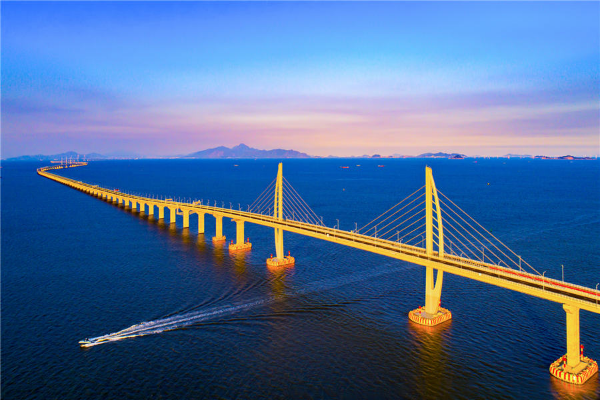Economic integration to aid Bay Area's expansion


Economic integration will be a great advantage in helping the Guangdong-Hong Kong-Macao Greater Bay Area increase its international competitiveness and become a world-class bay area.
As an economic powerhouse and one of China's most open areas to the outside world, the Bay Area comprises nine cities in Guangdong province-Guangzhou, Shenzhen, Zhuhai, Foshan, Dongguan, Zhongshan, Huizhou, Jiangmen and Zhaoqing-plus the Hong Kong and Macao special administrative regions.
Hong Kong and Macao, where land resources are limited, have greatly expanded their development space after extending cooperation and accelerating integration with the cities in Guangdong, according to local officials.
"Meanwhile, cities in Guangdong will further raise their international status through the expansion of economic ties and integration with the two SARs," they said.
The officials expect Guangdong, a window of China's reform and opening-up, to become a new center of the advanced manufacturing industry and an international innovation hub. Meanwhile, they believe that Hong Kong will consolidate its status as an international shipping and financial center, while Macao plans to become a leisure and tourism center.
"Economic integration will help the three regions accelerate the realization of their goals," they said.
To this end, Ma Xingrui, Guangdong's governor, has urged government departments and cities in the province to use the historic opportunities brought by the Bay Area to expand cooperation and exchanges with Hong Kong and Macao under the "one country, two systems" framework and accelerate economic integration in the years ahead.
Ma said the integration of Bay Area cities would be a great advantage when competing with similar bay areas around the world, and would benefit all 11 cities.
He also promised to speed up construction of major infrastructure projects linking Guangdong with Hong Kong and Macao to accelerate infrastructural connectivity among Bay Area cities.
A highly efficient infrastructure link will help the cities accelerate integration and achieve coordinated development to further improve the Bay Area's competitiveness.
In addition, Guangdong allows Hong Kong and Macao residents who have paid endowment insurance for more than 10 years but less than 15 by the time they reach retirement age to continue making contributions until they have accrued 15 years of payments.
That will allow them to receive a pension in the province.
Meanwhile, those who have still to pay the required amount after a five-year extension are allowed to claim the pension after a one-time payment to make up the shortfall.
In Guangdong, only people who have made payments for more than 15 years can enjoy the pension when they retire.
In terms of transportation, Yang Cheng Tong, a major electronic payment company in Guangzhou, is negotiating with its counterparts in Hong Kong and Macao to introduce a smart card before 2022 that will be accepted in all Bay Area cities.
The cities are currently linked by advanced high-speed railway and expressway networks.
The Bay Area occupies less than 1 percent of China's total land area, but is home to more than 5 percent of the national population. In 2018, its GDP was about 1 trillion yuan.







